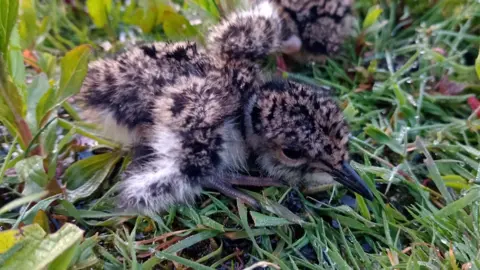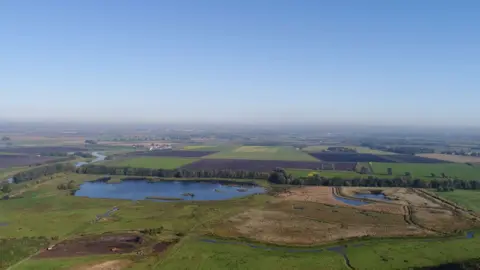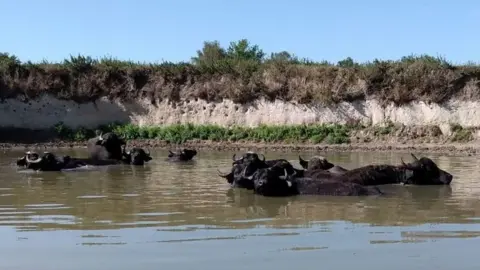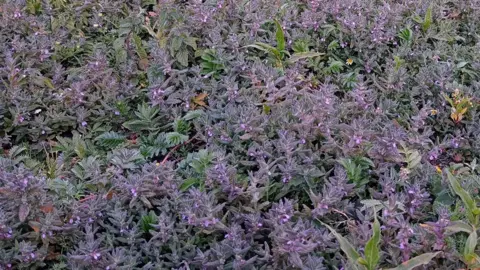Farm turned nature reserve marks 30 years
 Kingfishers Bridge
Kingfishers BridgeA wetland habitat which was "almost exclusively a birder reserve" until the Covid-19 pandemic is marking its 30th anniversary.
Kingfishers Bridge, a 300-acre (121-hectare) reserve between Wicken and Stretham, Cambridgeshire, went from having 2,000 visitors a year to 21,000 in 2023.
The dog-friendly reserve now has a car park, cafe, visitor centre and shop, as well as offering regular visitor tours of its rare habitats.
Manager James Moss said a recent success had been "a massive increase in our breeding population of lapwings".
 Kingfishers Bridge
Kingfishers BridgeThe farmland wading birds - which are on a list of endangered species - are well camouflaged, so the reserve has used a pioneering recording technique to chart numbers.
Mr Moss said: "This is a hand-held thermal camera and the technology allows us to find the nest and count the eggs, monitoring the breeding birds through until their chicks fledge."
 Kingfishers Bridge
Kingfishers BridgeFarmer and conservationist Andrew Green created the reserve in 1995 on the intensively farmed sugar beet and potato land.
Using the River Cam as a wildlife corridor to draw new species in, he began recreating lost fenland habitat from the former farm.
Kingfishers Bridge now attracts 210 different bird species, more than 90 of which have bred there, including the first bittern to successfully breed in Cambridgeshire since the 1930s.
It has also seen a vast increase in the vulnerable water germander, from 12 plants in 1996 to seven million today.
The data comes from RSPB, BTO & Environment Agency surveys, said Mr Moss.
 Kingfishers Bridge
Kingfishers BridgeLarge mammals are used to transform and manage the landscape, including a herd of water buffalo and two herds of Konik ponies.
"We've also introduced Old English Longhorn cattle from neighbouring farm Spinney Abbey to help manage the Cam Washes and they're doing fantastic job," said Mr Moss.
Volunteer numbers are up, helping out at big events, and a regular team of 10 volunteers "make a massive difference", he added.
Among other tasks, they help with hide and nest box creation, maintaining the infrastructure and with wildlife monitoring.
 Kingfishers Bridge
Kingfishers BridgeMr Moss added climate change - with extremes of weather and the lack of cold winters to kill off parasites - is of concern.
"While we're seeing biodiversity increase, we're also seeing invasive species - we have had our first Chinese water deer regularly on site," he said.
"Visitor numbers have stabilised and are now more manageable than it was at its peak in the pandemic, but we're at a level where the reserve could be self-sustaining now," he added.
Kingfishers Bridge plans to mark the anniversary during a weekend of events on 12 and 13 July.
Follow Cambridgeshire news on BBC Sounds, Facebook, Instagram and X.
